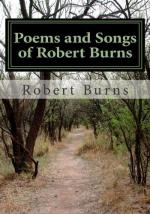|
This section contains 6,374 words (approx. 22 pages at 300 words per page) |

|
SOURCE: "Robert Burns: 'Heaven-taught ploughman'?," in Burns Now, edited by Kenneth Simpson, Canongate Academic, 1994, pp. 70–91.
In the following excerpt Simpson examines the myth of Burns as an uneducated peasant and the benefits and limitations such an image held for Burns.
It was Henry Mackenzie who, in December 1786, wrote admiringly of Burns as 'this Heaven-taught ploughman'.1 Within a few decades Scott was claim ing, 'Burns … had an education not much worse than the sons of many gentlemen in Scotland'.2 Scott's version is probably closer to the mark than Mackenzie's, but each had his reasons for forming a very specific conception of Burns, just as each had a specific conception of Scotland (and the two are closely interrelated).
Mackenzie's essay in The Lounger was headed 'Surprising Effects of Original Genius, exemplified in the Poetical Productions of Robert Burns, An Ayrshire Ploughman'. Mackenzie, whose values epitomise the polite taste of the...
|
This section contains 6,374 words (approx. 22 pages at 300 words per page) |

|


